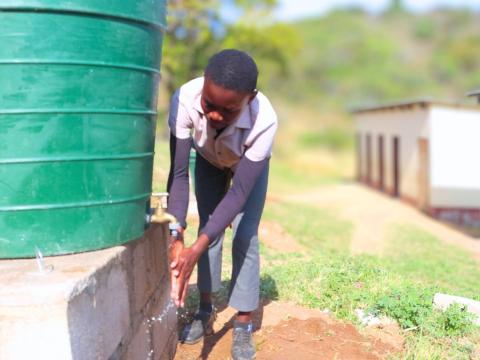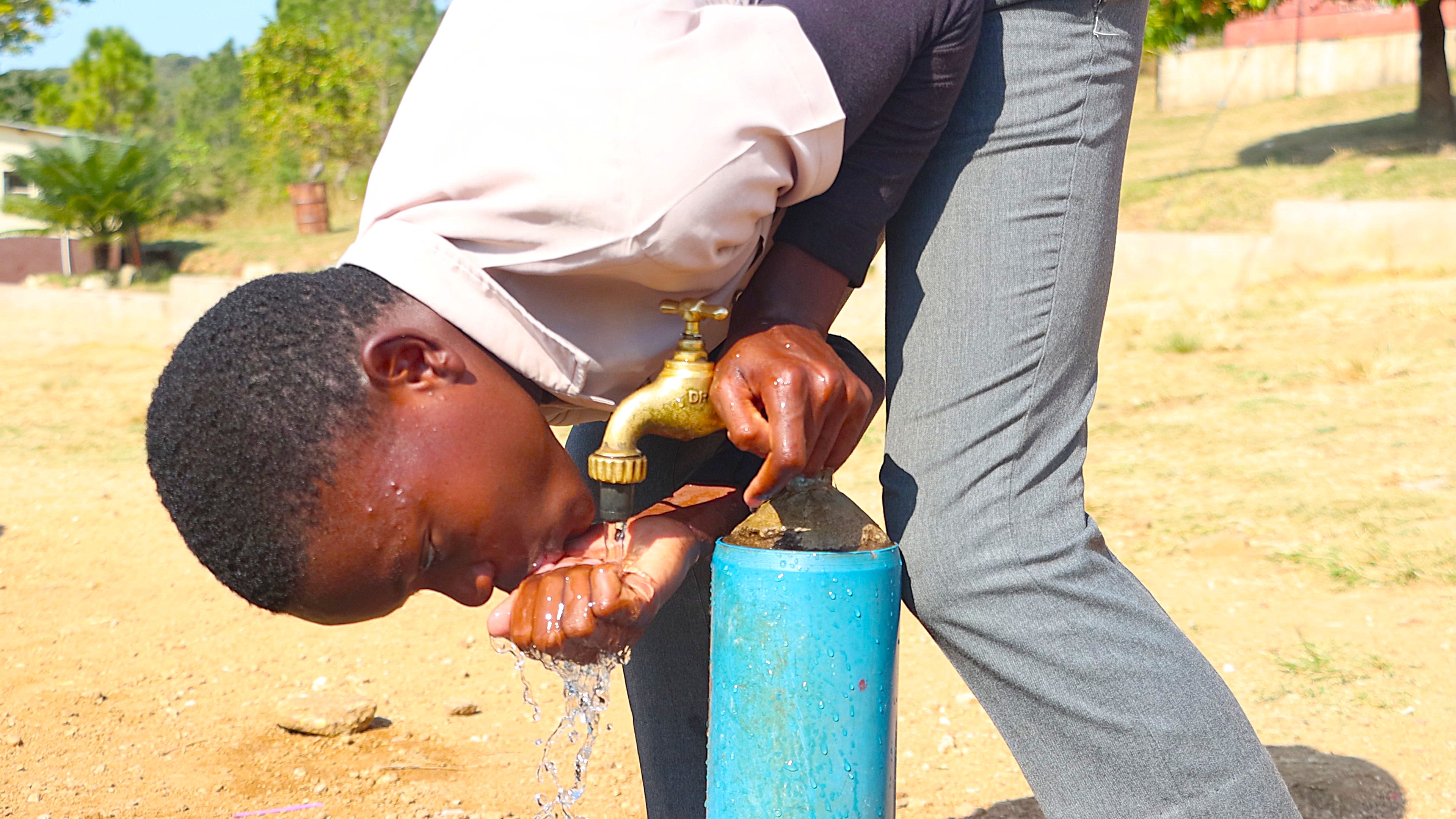A New Beginning for Learners in Rural Eswatini

For 15-year-old Mndeni, a Grade 7 learner from Mtsambama Inkhundla (constituency), going to school used to be physically and emotionally draining because of the challenges faced by the small primary school. Nestled in the mountains of Mtsambama, his school lacked basic facilities like clean water and toilets. Classes were frequently disrupted as learners had to walk nearly a kilometre to fetch water from Nyatsikati River, a source they shared with livestock.
“Sometimes the water was dirty and we had to wait for it to clear before taking it to school,” Mndeni recalls. This meant the learners had to spend even more time at the river.

“We didn’t even have proper toilets. There was just one for both boys and girls, and we had to queue just to use it.”
Today, Mndeni’s school has been completely transformed through the support of World Vision Eswatini’s Mtsambama Area Programme, which is funded by World Vision Taiwan. Water now flows from six taps around the school, supplied by a borehole, and learners have access to multiple toilets, five for boys, five for girls, as well as two for teachers.
“Now we use toilets freely and with privacy. We no longer miss lessons because we are fetching water,” says Mndeni with a smile.

World Vision’s support went beyond water and sanitation. The organisation also donated 40 computers to the school and trained teachers on how to use them. For Mndeni and his peers, this opened a new world of learning.
“Before, we thought computers only belonged to urban schools. Now we have them and have learned how to use them. It makes us feel like we are part of the modern world,” he says.
The headteacher, Zanele Shongwe, explains that the school, which serves 517 learners from Grade 0 to Grade 7, had faced immense challenges before World Vision’s intervention.
“Our learners used to walk long distances just to fetch water. It affected their learning and safety,” she says. “World Vision helped us by building toilets and providing clean water. They also donated computers, and now our teachers have been trained to use them and also teach the learners.”
Shongwe notes that while the school is grateful for the 12 toilets constructed, there is still a need for more to meet the recommended learner-to-toilet ratio of 1:25.
She adds that the improvements have helped align the school with Eswatini’s Inqaba Framework, a government strategy that promotes inclusive, child-friendly schools that support all learners, especially the most vulnerable. One of its seven pillars focuses on protection and safety for children, something the school now upholds through better sanitation and access to clean water.
“Our cook can now prepare meals without worrying about water. Learners can focus on learning instead of worrying about water. We are truly grateful to World Vision for making this possible,” says Shongwe with a smile.
With access to clean water, decent sanitation, and technology, Mndeni and his schoolmates have a conducive environment to thrive and reach their full potential.